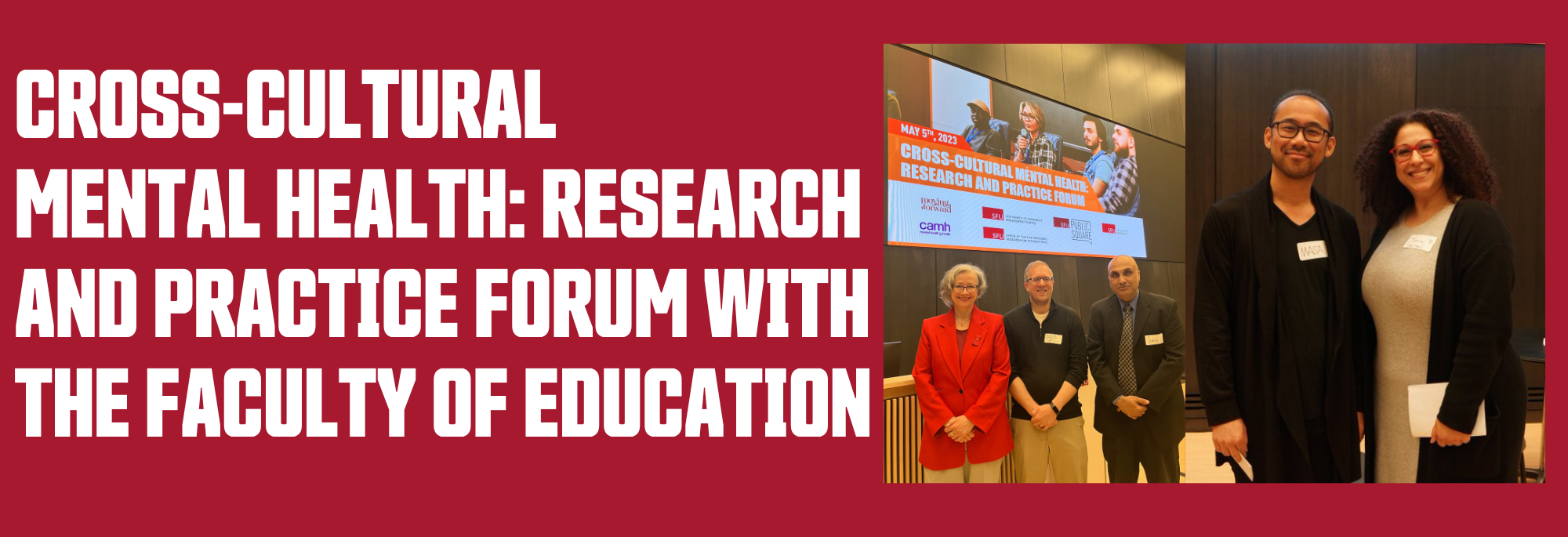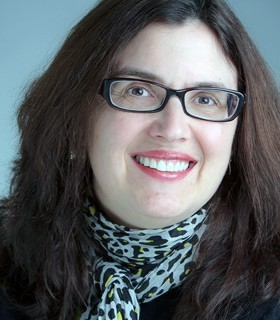- Future Students
- Current Students
- Programs
- Programs of Study
- Undergraduate Studies
- Bachelor of General Studies
- Bachelor of Education as a Second Degree
- Minors
- Counselling and Human Development Minor
- Curriculum and Instruction Minor
- Early Learning Minor
- Educational Psychology Minor
- Learning and Developmental Disabilities Minor
- Social Justice in Education Minor
- Elementary Generalist Minor
- Environmental Education Minor
- French Education Minor
- Physical and Health Education Minor
- Secondary Mathematics Education Minor
- Secondary Teaching Minor
- Certificates
- Courses
- Teacher Education
- Professional Diplomas
- Graduate Studies
- Masters Programs
- MA, MEd in Arts Education
- MA, MEd in Counselling Psychology
- MEd in Curriculum & Instruction: Children’s and Young Adult Literature
- MEd in Curriculum & Instruction: Contemplative Inquiry & Approaches in Education
- MEd in Curriculum & Instruction: Ecological Education
- MA, MEd in Curriculum & Instruction: Educational Theory and Practice
- M.Éd. dans Curriculum & Instruction: Enseigner et apprendre en français: plurilinguismes, francophonies et éducation
- MA, MEd in Curriculum & Instruction: Equity Studies in Education
- MEd in Curriculum & Instruction: Imagination in Teaching, Schooling and Place
- MEd in Curriculum & Instruction: Innovations in Mathematics Education
- MA, MEd dans Curriculum & Instruction: l'éducation en français en contextes de diversité (campus de SFU)
- MEd in Curriculum & Instruction: Place- and Nature-Based Experiential Learning
- MEd in Curriculum & Instruction: Post-Secondary (VCC)
- MEd in Curriculum & Instruction: Science Education and Communication
- MEd in Educational Leadership: Post-Secondary (Surrey)
- MEd in Educational Leadership: Imaginative K-12 Leadership
- MEd in Educational Practice
- MEd in Educational Practice: Indigenous Pedagogy and Indigenous Inquiry
- MEd in Educational Practice: Practitioner Inquiry
- MA, MEd in Educational Psychology
- MEd in Teaching Languages in Global Contexts
- MA, MEd in Educational Technology & Learning Design
- MSc, MEd in Secondary Mathematics Education
- MA, MEd in Teaching English as an Additional Language
- Doctoral Programs
- EdD in Educational Leadership: Leading for Educational Change in the Yukon
- PhD in Arts Education
- PhD in Educational Psychology
- PhD in Educational Technology & Learning Design
- PhD in Educational Theory and Practice: Curriculum and Pedagogy Stream
- PhD in Educational Theory and Practice: Philosophy of Education Stream
- PhD in Languages, Cultures and Literacies
- PhD en langues, cultures et littératies (en français)
- PhD in Mathematics Education
- Areas of Study
- Program Comparision
- Masters Programs
- Programs in French
- Faculty & Research
- Indigeneity
- Community
- About
- News & Events
- Support Us
- Instructor & Staff Resources
- Work With Us
- Contact
MA, MEd in Counselling Psychology
| Method of delivery: In-person |
Applications open: October 1, 2024 |
Applications close: December 1, 2024 |
Next start date: September 2025 |
Interested in becoming a counsellor? We designed the Counselling Psychology program to prepare you for a career as a professional counsellor in the community or an educational setting, such as a school or university.
Designed for
Those wishing to pursue a career as a professional counsellor in community and educational settings.
Program Structure
- Complete an MEd or an MA (with faculty approval)
- In-person classes typically held at the Surrey or Burnaby campus
- Clinic-based courses at the SFU Surrey Counselling Centre
- Designed for working professionals with classes held in the late afternoon/early evening
Intake Schedule
This program typically accepts applications on an annual basis.
Next Start Terms
Fall 2025
Program Design
The Counselling Psychology MA and MEd programs are highly sequenced, with almost all courses offered only once per year. The program structure and sequence is guided by two key principles:
- Effective counselling practice is guided by coherent theoretical frameworks, a working knowledge of assessment procedures, and a keen awareness of ethical principles and issues.
- Counselling skills and strategies are best learned through a series of structured experiences that allow students to refine their skills while becoming increasingly independent and confident in their clinical skills and judgment.
Graduates find rewarding careers providing counselling services (individual, group, personal, and career counselling and psycho-educational services) to adults and children in a variety of settings (e.g., public schools, university and college counselling centres, community-organizations). Graduates are eligible to register with the Canadian Counselling and Psychotherapy Association (CCPA), and/or the British Columbia Association of Clinical Counsellors (BCACC).
MEd vs MA
Both our Master of Arts (MA) and Master of Education (MEd) degrees are suitable for students who wish to practice counselling in various professional settings.
Our MA is suited for those who wish to conduct original research (in the form of a thesis) as part of their graduate studies. Students who are interested in pursuing a PhD in Counselling Psychology should consider the MA degree because most doctoral programs include a dissertation and accept applicants who have completed a thesis at the Masters level. In order to support a student's research for their thesis, an additional course in research is required. Students in the MA program may complete their Counselling Practicum in a wide range of professional settings.
Our MEd degree requires the completion of a comprehensive examination covering professional practice and ethics in counselling and a required course on counselling in educational settings. Students in the MEd program may also complete their Counselling Practicum in a wide range of professional settings.
Note: In order to be a school counsellor within the B.C. K-12 system, you must have a B.C. teaching qualification.
Employers typically make no distinction between the MA and the MEd when hiring counsellors. The MA and the MEd require the same time to complete and require the same amount of work on the part of students. Students in the MA and MEd take similar courses from the same instructors, and classes are often blended with both groups of students.
Schedule & Courses
You can complete the program in two calendar years and two terms (a minimum of eight terms).
Year 1
The program begins with courses which help students to develop in-depth understandings of theories of counselling and become familiar with assessment procedures. This is followed by a practical component of Counselling Psychology training (EDUC 874) in which students learn and practice advanced counselling skills with peers while receiving detailed feedback from program faculty. Students also usually take a course in ethics, and may take other required or elective courses.
Year 2
Students usually complete two supervised counselling clinics (EDUC 799 and EDUC 800) at the SFU Surrey Counselling Centre, where they participate in their first supervised clinical experience. While at the Centre, students see a small number of clients under very close supervision. Supervisors are able to watch students conduct counselling sessions, join students in their sessions with clients, and review recordings of students’ counselling sessions. In addition to the Supervised Clinic courses, students also complete other required or elective courses.
Year 3
All MA and MEd students complete their culminating supervised clinical experience: 2 practicum terms (September through April). During the practicums, students are placed in a community-based social service agency, a public school, or a university or college counselling centre where they see clients under the supervision of an on-site supervisor. The on-site supervisor is a fully qualified counsellor who works at the practicum site. Supervision during the practicum is based on supervisors and students reviewing recordings of the students’ counselling sessions and discussing sessions and cases. Students also attend an on-campus seminar (led by a faculty member from the program) with other students in the practicum. The seminar includes group supervision and case consultation. In addition, MEd students are required to register in the comprehensive exam course (EDUC 883) in their final term. Typically students complete all remaining degree requirements (course work, comprehensive examination, thesis examination) during this period.

Burnaby
Perched atop Burnaby Mountain, Simon Fraser University's original Arthur Erickson-designed campus includes more than three dozen academic buildings and a flourishing sustainable residential community.
Simon Fraser University respectfully acknowledges the unceded traditional territories of the Coast Salish peoples, including the səl̓ilw̓ətaʔɬ (Tsleil-Waututh), kʷikʷəƛ̓əm (Kwikwetlem), Sḵwx̱wú7mesh Úxwumixw (Squamish) and xʷməθkʷəy̓əm (Musqueam) Nations, on which SFU Burnaby is located.

Surrey
Our Surrey campus is a vibrant community hub in the heart of one of Canada’s fastest-growing cities. With easy access to transit, the modern campus is conveniently situated between Metro Vancouver and communities south of the Fraser River.
Simon Fraser University respectfully acknowledges the unceded traditional territories, including the Semiahmoo, Katzie, kʷikʷəƛ̓əm (Kwikwetlem), Kwantlen, Qayqayt and Tsawwassen Nations, on which SFU Surrey is located.

SFU Surrey Community Counselling Centre
All counselling is provided by Counsellor Trainees in the SFU Master's program in Counselling Psychology under the close supervision of the program’s instructional team.
Learn more about the SFU Surrey Community Counselling Centre
-
May 11, 2023

May 11, 2023
-
August 31, 2022

August 31, 2022
The newly designed Surrey Community Counselling location at SFU's Surrey Campus is enabling the dedicated staff, faculty, and students to reach even more lives through accessible, free, and clinically sound mental health care.
-

"My time at the Faculty of Education changed my life, partly by facilitating my recognition of new competencies and interests within myself."
"I chose the Counseling Psychology Program within the Faculty of Education at SFU because of the high quality of instruction and training I would receive."
Cheryl Inkster, 2017 Graduate
LEARN MORE ABOUT THIS PROGRAM
Curious to know more about the program?
Previous Information Sessions
-
Ashleen Rider Program Assistant - Counselling Psychology MA/MEd (Temporary)
Burnaby Graduate Programs 778-782-8120 couns_adm@sfu.ca SRYC 5203



